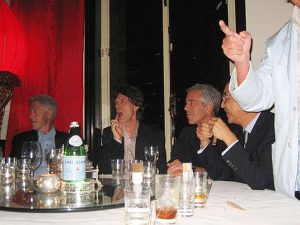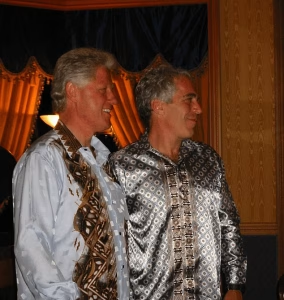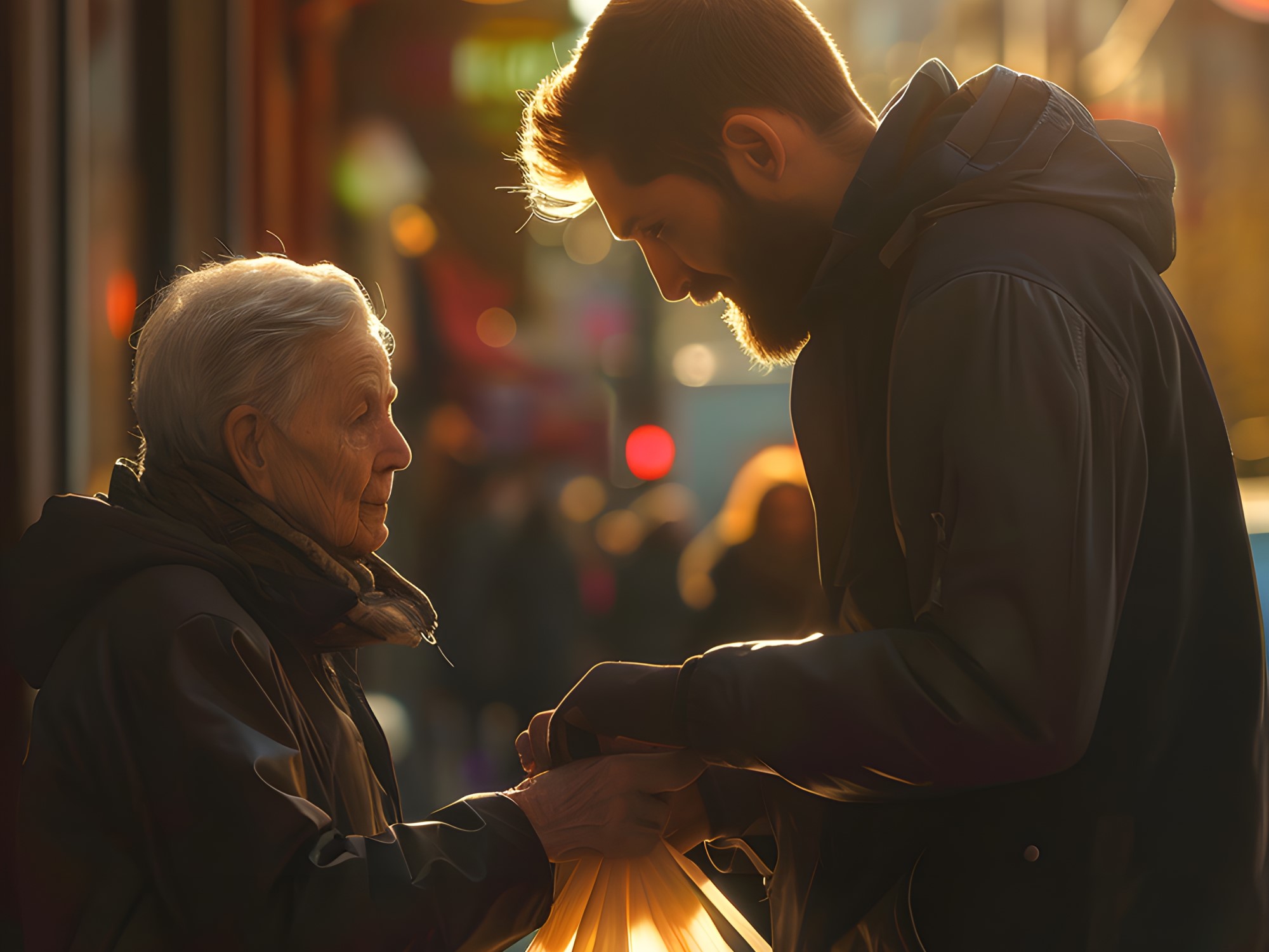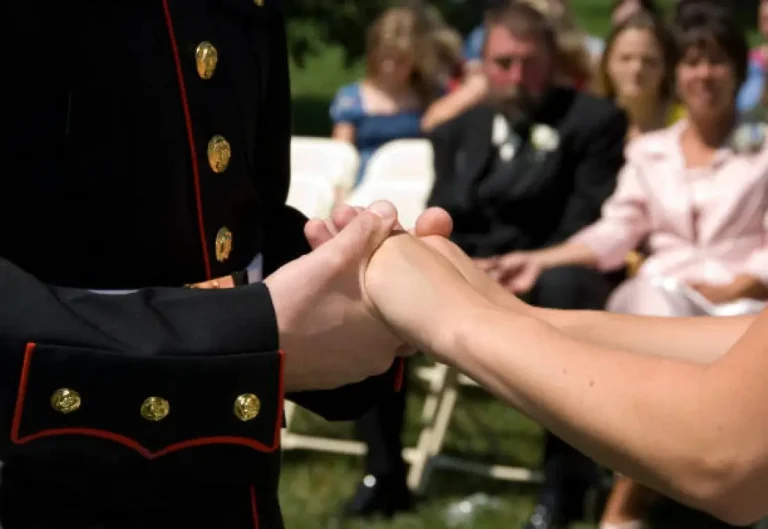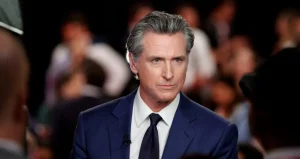The morning sun filtered through the floor-to-ceiling windows of Daniel Foster’s penthouse office, casting long shadows across the mahogany desk where he sat reviewing quarterly reports. At thirty-two, he commanded an empire that most people could only dream of—Foster Technologies had revolutionized cloud computing and artificial intelligence, making him one of the youngest billionaires in the country. The numbers on his screen showed another record-breaking quarter, but Daniel felt nothing as he scrolled through the financial projections.
Success, he had learned, was a cold companion.
His assistant knocked softly on the door, interrupting his thoughts. “Mr. Foster? The board meeting is in ten minutes.”
“Thank you, Sarah,” he replied, his voice carrying the practiced authority of a man accustomed to being obeyed. But as she closed the door, Daniel remained seated, staring out at the city skyline that stretched endlessly before him. Somewhere out there, among the millions of faces and countless stories, was a woman who had given him life—and then vanished from his world before he could even form his first memory.
The question that had haunted him since childhood pressed against his consciousness once again: Who was she? Why had she given him up? And most painfully, was she even alive?
Daniel’s adoptive parents, Margaret and Richard Foster, had been wealthy socialites who treated his adoption like acquiring a prized possession. They had provided him with the finest education money could buy, enrolled him in elite boarding schools, and ensured he wanted for nothing material. But warmth, genuine affection, and emotional connection had been luxuries even their vast fortune couldn’t purchase.
“Your biological mother was a nobody,” Richard had told him coldly when Daniel was twelve and had worked up the courage to ask about his origins. “She abandoned you because she couldn’t handle the responsibility. You should be grateful we rescued you from that life.”
Margaret had been equally dismissive, often reminding him that he owed his success entirely to their generosity. “Without us, you’d probably be living in some slum,” she would say with the casual cruelty of someone who had never known real hardship. “Your birth mother did you a favor by giving you up.”
But Daniel had never believed their version of events. Even as a child, something about their story felt wrong, incomplete. He would lie awake at night, staring at the ceiling of his expensive bedroom, wondering about the woman who had carried him for nine months, who had felt his first kicks, who had held him however briefly before letting him go.
The boarding schools had been a blessing in disguise—they had given him distance from the Fosters’ emotional coldness and allowed him to focus on his studies. Daniel had thrown himself into computer science and mathematics with an intensity that impressed even his teachers. By the time he graduated from MIT at twenty-one, he had already developed the algorithms that would form the foundation of his future empire.
The success had come quickly after that. Foster Technologies had exploded onto the tech scene with innovations that seemed to anticipate market needs before they were even articulated. Within five years, Daniel had gone from brilliant graduate to tech mogul, gracing the covers of business magazines and speaking at conferences around the world.
But none of it filled the emptiness inside him.
Richard Foster had died of a heart attack two months ago, and Margaret had followed just weeks later, apparently unable to cope with the loss of her social status as a widow. Daniel had felt surprisingly little grief at their passing—how could you mourn people who had never truly loved you? But their deaths had freed him from the obligation to pretend gratitude for their cold version of parenthood.
It was while cleaning out Richard’s study that Daniel had made the discovery that would change everything.
The room had been Richard’s private sanctuary, filled with leather-bound books he never read and expensive art he had bought for its investment value rather than beauty. Daniel had been methodically going through papers, preparing to donate most of the contents to charity, when he noticed something odd about one of the built-in bookcases.
Behind a row of first-edition novels, his fingers had found a small lever. When pressed, it revealed a hidden compartment containing items Richard had clearly never intended for anyone to find. There were offshore account statements, evidence of tax evasion, and other financial improprieties that painted Richard Foster as even more ruthless than Daniel had imagined.
But at the bottom of the compartment was something that stopped Daniel’s heart: a manila envelope marked “Adoption Records – CONFIDENTIAL” in Richard’s distinctive handwriting.
With trembling hands, Daniel had opened the envelope to find documents that shattered everything he thought he knew about his origins. There were official adoption papers, medical records, and most shocking of all, a photograph that made his breath catch in his throat.
The woman in the picture was young—probably no more than twenty—with dark skin and eyes that seemed to hold all the sorrow in the world. She was sitting in what appeared to be a hospital bed, cradling a newborn baby with an expression of such profound love and heartbreak that Daniel had to sit down. On the back of the photograph, someone had written in careful handwriting: “Amara Foster with baby Daniel, March 15, 1992. Final goodbye before adoption.”
Foster. She had the same last name, which meant…
Daniel had rifled through the other documents with growing urgency. The adoption papers told a story completely different from what the Fosters had led him to believe. His birth mother, Amara Foster, had been married to James Foster, Richard’s younger brother—a pilot who had died in a commercial aviation accident just two months before Daniel was born.
The legal documents painted a picture of devastating tragedy. Amara had been left not only widowed but financially destroyed. James had been the family’s sole income earner, and his death had left her with massive medical debt from his treatment, no life insurance due to a technicality in his policy, and a baby she couldn’t afford to care for.
According to a social worker’s report in the file, Amara had fought desperately to keep her child. She had taken multiple jobs, lived in a car, and nearly collapsed from exhaustion trying to provide for Daniel. But when he developed a serious respiratory infection at three months old and required expensive medical treatment, she had been faced with an impossible choice.
Richard’s notes, written in his cold, clinical style, revealed the truth that Daniel had never been told: Richard had orchestrated the entire adoption. He had used his wealth and connections to ensure that Amara’s financial situation became untenable, then positioned himself as the “generous” family member willing to take in the child.
“Amara Foster is an unfit mother due to financial instability,” read one court document that Richard had clearly influenced. “Child will be better served in stable, affluent home environment.”
The final document in the file was the most heartbreaking: a letter from Amara to Richard, written in shaky handwriting.
Mr. Foster, I know you think I’m not good enough to raise James’s son, and maybe you’re right. I can’t give him the advantages you can. But please understand—I’m not giving him up because I don’t love him. I’m giving him up because I love him more than my own life. Promise me you’ll tell him that someday. Promise me he’ll know that letting him go was the hardest thing I’ve ever done. I will love him forever. Amara
Daniel had read the letter three times before the tears blurred his vision too much to continue. This woman—his mother—hadn’t abandoned him out of indifference or inability to love. She had been forced to make an impossible choice by circumstances beyond her control and by the manipulations of the man Daniel had called father for thirty-two years.
That night, Daniel had lain awake in his massive, empty house, staring at the photograph of Amara Foster and wondering if she was still alive. The adoption papers indicated that she had relinquished all rights to contact or information about her son, but they didn’t say what had become of her afterward.
For the first time in his adult life, Daniel had a mission that mattered more than quarterly profits or market share. He was going to find his mother.
The search had consumed him for months. Daniel hired the best private investigators money could buy, accessed databases most people couldn’t even dream of reaching, and followed every possible lead. But Amara Foster had seemingly vanished after signing the adoption papers. There was no death certificate, no social security records after 1992, no credit history or address changes. It was as if she had simply ceased to exist in any official capacity.
“Mr. Foster,” his lead investigator, a gruff ex-cop named Marcus Webb, had told him during one of their weekly meetings. “I have to be honest with you. People who disappear this completely from the system… they’re usually either dead or living completely off the grid. And after thirty years, the chances of finding someone living off the grid are practically zero.”
But Daniel refused to give up. He had Webb expand the search nationwide, then internationally. He hired genealogists, social workers, and anyone else who might have insights into how a young woman in 1992 might have rebuilt her life after losing everything.
The breakthrough came from an unexpected source.
Daniel had been driving through the historic district after a business lunch, taking a route he rarely used because traffic was typically heavy in that part of the city. But construction on his usual path had forced him to navigate the narrow streets lined with century-old buildings and small shops that catered to tourists rather than the tech executives who usually occupied his world.
He had been stopped at a traffic light, absently checking emails on his phone, when something made him look up. Later, he would wonder if it was instinct, fate, or simply random chance that drew his attention to the sidewalk at that particular moment.
An elderly woman was shuffling along the concrete, bent under the weight of a large canvas bag slung across her shoulder. Her clothes were torn and dirty, her feet bare despite the autumn chill, and her gray hair hung in matted strands around her face. She looked like any of the dozens of homeless people who populated the city’s streets—invisible to most passersby, dismissed as another casualty of urban indifference.
But when she paused at the corner to rest, turning slightly toward the street, Daniel saw her profile, and his world stopped.
Even aged by three decades of hardship, even worn down by whatever struggles she had endured, the bone structure was unmistakable. The shape of her eyes, the line of her jaw, the way she held her head even in exhaustion—Daniel saw his own features reflected in her face as clearly as if he were looking in a mirror.
The car behind him honked as the light turned green, but Daniel didn’t move. He stared at the woman on the sidewalk, his heart pounding with a certainty that defied logic. This was her. After months of searching through databases and following dead ends, he had found his mother by accident on a street corner twelve blocks from his office.
Daniel pulled his car to the curb with shaking hands, ignoring the angry honks of drivers forced to navigate around him. He stumbled out onto the sidewalk, his expensive suit and polished shoes absurdly out of place among the gritty urban landscape.
The woman—Amara, his mind whispered with growing conviction—had continued walking, unaware that her son was approaching from behind. When Daniel finally called out, his voice came out as barely more than a whisper.
“Excuse me.”
She turned, and Daniel found himself looking into eyes that were unmistakably his own—the same unusual shade of amber-brown, the same shape, the same expression of intelligence despite the weariness that surrounded them.
For a moment, they simply stared at each other. Daniel tried to speak, tried to find words adequate for a moment he had dreamed about his entire life, but his throat felt closed with emotion.
Finally, he managed to whisper, “Are you Amara Foster?”
The woman’s eyes widened with something between fear and hope. She looked around nervously, as if expecting this to be some kind of trap.
“I… who’s asking?” she replied, her voice carrying an educated accent that seemed incongruous with her appearance.
Daniel’s hands shook as he reached into his jacket pocket and pulled out the photograph he had been carrying everywhere for months—the picture of a young woman holding her newborn son. He held it out with trembling fingers.
“This is you,” he said, his voice breaking. “This is us. Thirty-two years ago.”
Amara stared at the photograph, and Daniel watched her face cycle through a dozen emotions—shock, recognition, disbelief, and finally, overwhelming grief. Her hands flew to her mouth as tears began streaming down her weathered cheeks.
“Oh my God,” she whispered. “Oh my God, it’s really you.”
The canvas bag slipped from her shoulder and hit the sidewalk with a dull thud, spilling its meager contents—a few pieces of clothing, a battered paperback book, and a small bundle wrapped in a torn handkerchief. But neither of them noticed. They stood frozen in the middle of the busy sidewalk, mother and son finally face to face after three decades of separation.
“Daniel?” she said, his name coming out like a prayer. “Is it really Daniel?”
“Yes,” he managed to say through his tears. “Yes, it’s me. I’ve been looking for you.”
Amara collapsed to her knees on the concrete, sobbing with a grief so profound that passersby stopped to stare. Daniel immediately knelt beside her, his expensive pants soaking up street grime as he gathered her into his arms.
“I’m sorry,” she kept repeating through her tears. “I’m so sorry. I never wanted to leave you. They told me I had no choice. I’m so sorry.”
“You don’t have to apologize,” Daniel said, holding her close and feeling more complete than he had in his entire life. “I know what happened. I know about Dad’s death, about Richard, about everything. You saved my life. You gave me a chance.”
They held each other on the sidewalk while the city moved around them—businesspeople hurrying to appointments, tourists taking photos, street vendors calling out their wares. But for Daniel and Amara, the rest of the world had ceased to exist.
When they finally pulled apart, Daniel got his first close look at what the intervening years had done to his mother. Her face was deeply lined, prematurely aged by hardship and exposure to the elements. Her hands were rough and scarred, her clothes hung loose on a frame that was clearly undernourished. But her eyes—his eyes—still held the intelligence and strength he had seen in that hospital photograph.
“Look at you,” she whispered, reaching up to touch his face with wonder. “You’re so handsome. So successful. I can tell just by looking at you that you’ve done well.”
“I have,” Daniel admitted. “But it doesn’t mean anything without you. I’ve been empty my whole life, wondering about you, wishing I could find you.”
Amara’s face crumpled again. “I’ve thought about you every single day. I wondered if you were happy, if you were healthy, if you ever thought about me. I prayed you would have a good life and never need to know about the woman who gave you away.”
“You didn’t give me away,” Daniel said firmly. “You were forced to let me go. There’s a difference.”
He helped her to her feet, noticing how unsteady she seemed, how thin and frail her body felt under the layers of worn clothing. “Mom,” he said, testing the word that had never felt real before, “let me take care of you now. Let me bring you home.”
Amara shook her head, stepping back with a mixture of longing and shame. “I can’t. Look at me, Daniel. I’m nothing. I’m nobody. You have a life, a reputation to protect. People like me… we don’t belong in your world.”
“My world is empty without you,” Daniel said simply. “I don’t care what anyone thinks. I don’t care about reputations or social status or any of that. I only care about you.”
He gestured toward his car, which was still parked haphazardly at the curb with its hazard lights flashing. “Please. Just let me buy you a meal, get you some warm clothes. We have thirty-two years to catch up on.”
Amara looked at the expensive sports car, then back at her son’s pleading face. “I don’t know how to be in your world,” she said quietly. “I’ve been on the streets for so long, I’ve forgotten how to be around people.”
“You don’t have to be anyone but my mother,” Daniel replied. “That’s all I’ve ever wanted.”
It took another ten minutes of gentle persuasion before Amara finally agreed to get in the car. She sat stiffly in the leather passenger seat, her hands folded in her lap as if afraid to touch anything. Daniel could see her taking in the luxury of her surroundings with a mixture of awe and discomfort.
“Tell me about your life,” Daniel said as they drove slowly through the city. “Tell me what happened after… after you had to let me go.”
Amara was quiet for so long that Daniel wondered if she had changed her mind about talking. But finally, she began to speak, her voice soft and distant.
“After I signed the papers, I had nowhere to go. Richard had made it clear that I wasn’t welcome to have any contact with his family. I had no money, no job, no references. I tried to get work, but without an address or decent clothes…” She trailed off, staring out the window.
“I ended up in shelters at first, then on the streets when the shelters were full. I did odd jobs when I could find them—cleaning, washing dishes, anything that would give me a few dollars. I told myself I was going to get back on my feet, find a way to make a life for myself.”
Daniel’s hands tightened on the steering wheel as he imagined his mother struggling to survive while he grew up in luxury just across town.
“But the longer I was on the streets, the harder it became to climb out,” Amara continued. “You lose things living that way—not just material things, but pieces of yourself. Your confidence, your hope, your ability to imagine a different future. After a while, survival becomes your only goal.”
“But you survived,” Daniel said. “You’re here. That’s what matters.”
Amara turned to look at him with eyes full of tears. “There were times I didn’t want to survive. Times when the grief of losing you and your father was so overwhelming that I just wanted it to end. But I kept thinking… maybe someday you’d look for me. Maybe someday you’d want to know about your real parents. I couldn’t let that happen if I wasn’t here to tell you.”
Daniel had to pull over and park because the tears in his eyes were making it impossible to drive safely. He turned to face his mother, this woman who had endured three decades of hardship while holding onto hope that seemed impossibly fragile.
“You’re the strongest person I’ve ever met,” he said. “And I’m going to spend the rest of my life making sure you never have to worry about survival again.”
He took her to his penthouse apartment first, wanting to give her a safe, private space to process everything that was happening. Amara stood in his living room, taking in the panoramic city views and expensive furnishings with obvious overwhelm.
“This is where you live?” she asked, her voice barely above a whisper.
“This is where we live now, if you want it to be,” Daniel replied. “I know it’s a lot to take in. But Mom, I meant what I said—I want to take care of you.”
Amara walked slowly to the floor-to-ceiling windows, looking out at the city spread below them. “I used to clean buildings like this,” she said quietly. “I’d look at the lights in the windows and wonder what kind of people lived behind them, what their lives were like.”
“Now you know,” Daniel said, joining her at the window. “They’re people like me—people who have everything they thought they wanted but are still searching for the things that really matter.”
That evening, Daniel arranged for a doctor to come to the apartment to check on Amara’s health. Dr. Sarah Chen was discrete and professional, but Daniel could see the concern in her expression as she examined his mother.
“She’s severely malnourished,” Dr. Chen told Daniel privately. “She has several untreated medical issues that are consistent with long-term homelessness—respiratory problems from exposure, joint issues from sleeping on hard surfaces, dental problems from poor nutrition. Nothing that can’t be treated, but she’s going to need time and care to recover fully.”
Daniel nodded grimly. “Whatever she needs. Money is no object.”
Over the next few days, Daniel devoted himself entirely to his mother’s care. He arranged for new clothes to be brought to the apartment, hired a nutritionist to plan meals that would help her regain strength, and set up appointments with specialists to address her various health issues.
But more importantly, they talked. For hours each day, they sat together and shared the stories of their separate lives. Amara told him about his father—James Foster had been Richard’s younger brother, but completely different in temperament. Where Richard was cold and calculating, James had been warm and generous, a pilot who loved flying and dreamed of starting his own aviation company.
“Your father was the kindest man I ever knew,” Amara said one evening as they sat by the fireplace in Daniel’s living room. “He would have loved you so much. You have his eyes, you know—that same intensity, that same intelligence.”
Daniel learned that his parents had been deeply in love, high school sweethearts who had married young and were thrilled to be expecting their first child. James’s death in a commercial aviation accident had been sudden and devastating—a mechanical failure that investigators later determined could have been prevented with proper maintenance.
“The airline fought the wrongful death lawsuit for years,” Amara explained. “By the time they finally settled, I had already lost you and was living on the streets. The money went to paying off medical debts and legal fees. There wasn’t enough left to change my circumstances.”
Daniel also learned about his mother’s life before the tragedy. She had been a teacher, working with elementary school children and loving every moment of it. She had a college degree in education and had been considered one of the brightest prospects in her district.
“I always wondered if you’d be good with children,” she said, smiling at him with pride. “Teaching was my passion. I thought maybe someday I’d go back to it, after you were older and I could afford childcare.”
“You still could,” Daniel said impulsively. “You could go back to teaching now, if that’s what you want.”
Amara laughed, but it was a sad sound. “Daniel, I appreciate the thought, but look at me. I’m a sixty-year-old woman who’s been homeless for three decades. No school would hire me.”
“They would if I built them a new school,” Daniel replied seriously. “Mom, you don’t understand—I have resources now. Real resources. If you want to teach again, I can make that happen.”
As the weeks passed, Amara slowly began to recover both physically and emotionally. The good nutrition and medical care restored color to her cheeks and strength to her frame. But more importantly, the knowledge that her son had been searching for her, that he didn’t blame her for the choices she had been forced to make, seemed to heal something deep inside her that had been broken for decades.
Daniel, meanwhile, discovered that having his mother in his life changed everything about how he saw the world. Success meant something different when you had someone to share it with who truly understood its value. Money became a tool for good rather than just a way to keep score.
He established a foundation dedicated to helping homeless families, particularly single mothers who had lost children to the system. He donated millions to organizations that provided job training, housing assistance, and legal aid to people trying to rebuild their lives.
“I want to make sure no other family has to go through what we went through,” he told Amara as they reviewed the foundation’s first annual report together.
Amara looked up from the documents with tears in her eyes. “Your father would be so proud of you,” she said. “Not because of your success, but because of your heart. You’ve turned our pain into purpose.”
One evening, nearly two months after their reunion, Daniel found his mother standing in the garden of his estate, looking up at the stars. She seemed peaceful in a way he had never seen before, no longer carrying the weight of decades of grief and uncertainty.
“Regrets?” he asked, joining her in the cool night air.
Amara considered the question seriously before answering. “I regret the years we lost,” she said finally. “I regret that I wasn’t there to see you grow up, to help you through difficult times, to celebrate your successes. But I don’t regret the choice I made to let you go. If I had kept you, tried to raise you in poverty, you might not have become the man you are today.”
“I would have been happy just to have you,” Daniel said.
“I know,” Amara replied, reaching over to squeeze his hand. “But you deserved more than survival. You deserved the chance to thrive, to build something meaningful, to make a difference in the world. Richard may have been cold and manipulative, but he did give you opportunities I never could have provided.”
They stood together in comfortable silence, mother and son finally reunited under the same sky that had witnessed their separation three decades earlier.
“What happens now?” Daniel asked.
Amara smiled, and for the first time since he had found her, Daniel saw genuine joy in her expression rather than just relief and gratitude.
“Now we make up for lost time,” she said. “Now we build the relationship we should have had all along. And now I get to watch my son continue changing the world—not from a distance, but right beside him.”
Daniel pulled his mother into a hug, holding her close and marveling at how perfectly she fit in his arms, as if no time had passed at all since that hospital photograph was taken.
“I love you, Mom,” he whispered.
“I love you too, son,” she whispered back. “I never stopped, not for a single day.”
As they walked back toward the house together, Daniel reflected on the journey that had brought them to this moment. He had spent his entire adult life building an empire, accumulating wealth and success that most people could only dream of. But none of it had filled the emptiness inside him, the fundamental sense that something crucial was missing from his existence.
Now he understood that the missing piece hadn’t been something money could buy or success could provide. It had been the love of the woman who had given him life, who had sacrificed everything so that he could have a chance at a better future, who had endured decades of hardship while holding onto hope that someday they might find each other again.
The hollow place in Daniel’s heart was finally filled, not with gold or achievements, but with something far more precious—the unconditional love of a mother who had never stopped believing that someday, somehow, her son would come home.
And in the warm light spilling from the windows of his house, as he walked beside the woman who had shaped his very existence through her love and sacrifice, Daniel Foster finally understood what it meant to be truly wealthy.

Emily Johnson is a critically acclaimed essayist and novelist known for her thought-provoking works centered on feminism, women’s rights, and modern relationships. Born and raised in Portland, Oregon, Emily grew up with a deep love of books, often spending her afternoons at her local library. She went on to study literature and gender studies at UCLA, where she became deeply involved in activism and began publishing essays in campus journals. Her debut essay collection, Voices Unbound, struck a chord with readers nationwide for its fearless exploration of gender dynamics, identity, and the challenges faced by women in contemporary society. Emily later transitioned into fiction, writing novels that balance compelling storytelling with social commentary. Her protagonists are often strong, multidimensional women navigating love, ambition, and the struggles of everyday life, making her a favorite among readers who crave authentic, relatable narratives. Critics praise her ability to merge personal intimacy with universal themes. Off the page, Emily is an advocate for women in publishing, leading workshops that encourage young female writers to embrace their voices. She lives in Seattle with her partner and two rescue cats, where she continues to write, teach, and inspire a new generation of storytellers.

